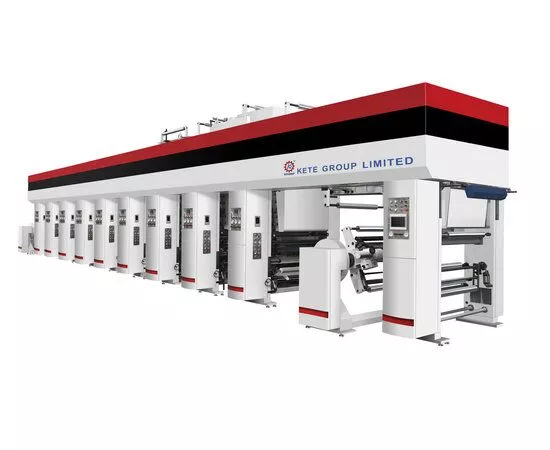In today’s world, the push for eco-friendly and sustainable practices is more significant than ever. Businesses across industries are seeking ways to reduce their environmental footprint, and the printing industry is no exception. Flexographic printing machines have emerged as a sustainable printing solution that aligns with the growing demand for environmentally friendly production processes. This article explores the benefits of flexographic printing machines and their role in promoting printing practices. Flexographic printing, also known as flexo printing, is a versatile and eco-conscious printing technique widely used for packaging, labels, and various applications. Unlike traditional printing methods, such as offset or gravure printing, flexography offers several advantages when it comes to sustainability:
Reduced Material Waste – The flexo printing machine uses flexible printing plates made from materials like rubber or photopolymer. These plates are durable and can be reused many times, reducing the need for frequent replacements and minimizing waste. Additionally, flexo presses can handle a variety of substrates, including recycled and biodegradable materials, further contributing to waste reduction.
 Water-Based Inks – Flexographic printing predominantly employs water-based inks. These inks are environmentally friendly because they contain fewer volatile organic compounds VOCs and harmful chemicals. Water-based inks are also easier to recycle and dispose of, reducing the environmental impact associated with solvent-based inks.
Water-Based Inks – Flexographic printing predominantly employs water-based inks. These inks are environmentally friendly because they contain fewer volatile organic compounds VOCs and harmful chemicals. Water-based inks are also easier to recycle and dispose of, reducing the environmental impact associated with solvent-based inks.
Energy Efficiency – Flexo presses are known for their energy efficiency. They require less power and have shorter setup and drying times compared to other printing methods. This results in lower energy consumption and decreased carbon emissions, aligning with sustainable practices.
Minimal Emissions – The use of water-based inks and reduced energy consumption in flexo printing results in minimal emissions of pollutants and greenhouse gases. This makes flexographic printing a cleaner and more environmentally responsible option for businesses aiming to reduce their carbon footprint.
Printing on Recyclable Materials – Flexo printing is adaptable to a wide range of substrates, including recyclable and biodegradable materials. This versatility enables businesses to use eco-friendly packaging materials and labels without compromising on print quality.
Green Certifications – Many flexographic printing companies strive to obtain green certifications and adhere to eco-friendly practices, ensuring that their production processes meet specific environmental standards. These certifications provide assurance to clients and partners that their printed materials are produced sustainably.
High-Quality Output – Despite its eco-friendly features, flexographic printing does not sacrifice print quality. It offers vibrant, high-resolution prints with crisp text and graphics. This makes it an ideal choice for businesses looking to balance sustainability with the need for top-notch branding and marketing materials.
Reduced Costs – While the initial investment in rotogravure printing machine may be relatively high, businesses can achieve cost savings in the long run through reduced material waste, lower energy consumption, and more efficient printing processes. Over time, the return on investment can be substantial.
Flexographic printing machines have emerged as a leading eco-friendly printing solution in the industry. Their reduced material waste, use of water-based inks, energy efficiency, and minimal emissions make them a sustainable choice for businesses looking to reduce their environmental impact. Furthermore, their compatibility with recyclable materials and ability to produce high-quality output make flexo printing an attractive option for companies seeking a balance between eco-conscious practices and cost-effectiveness.
